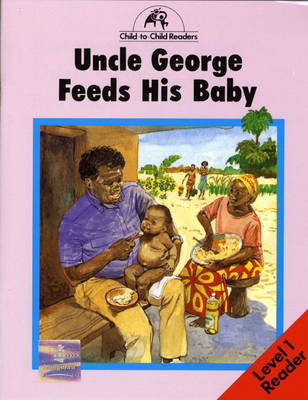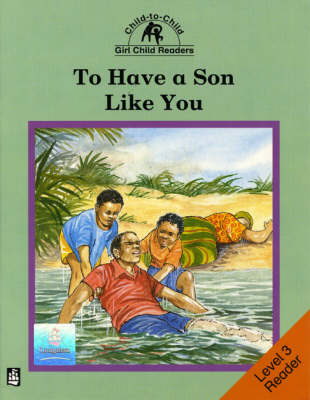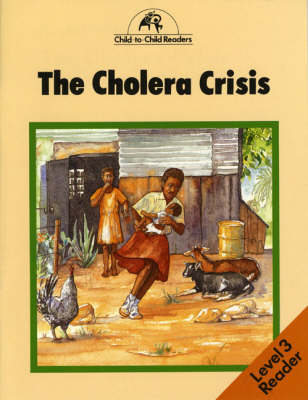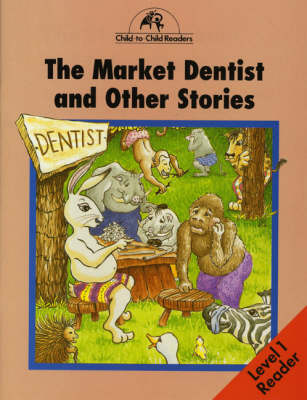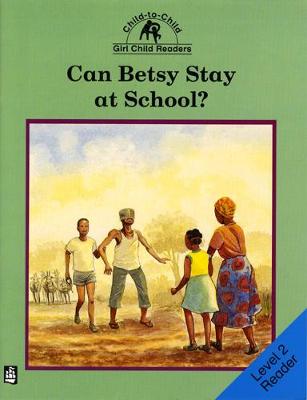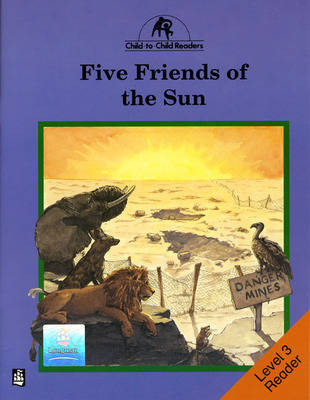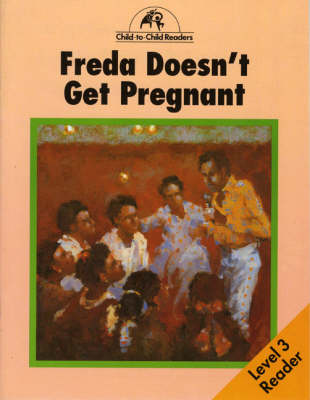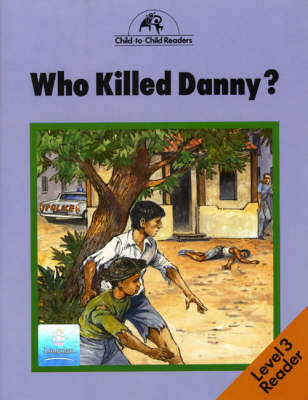Child to Child Readers
8 total works
Each book has been written by an experienced educationalist in conjunction with a panel of medical and language specialists. The books have been graded into three reading levels, and each book deals with a different health topic of relevance to children in Africa.
Uncle George Feeds His Baby is a Level 1 reader which shows children the importance of good nutrition for healthy growth and development. The book explains that good nutrition begins from birth with breastfeeding and continues with a mixed diet based on regularly eating a wide range of foods.
The readers can be used as an integral part of a primary Science, Social Studies, Environmental Science, Home Economics or Health Science curriculum. They can also be used in language lessons.
While full of exciting adventure, these stories reveal the problems and discrimination faced by many girls. The stories show what girls can achieve if they are given the same opportunities and treatment as their brothers. The characters in these readers provide positive role models for both girls and boys, developing their confidence and self-esteem and demonstrating the importance of life skills, such as communication and critical thinking. A central theme for the series is the value of girls' education.
To Have a Son Like You is a Level 3 reader. In this story, Leonora is the third daughter to be born to her parents. Her father, who is deeply disappointed not to have a son, disappears and is presumed dead. Many years later, Leonora saves a man's life in a storm. He says he would be proud to have a daughter like her.....but who is this man? This story illustrates how boys and girls should be valued equally in the family.
The Girl Child series can make a useful contribution to educational initiatives seeking to promote girls' performance and retention in school. They can also be used as support material for life skills programmes, in and out of school. The books are graded at two levels, intended for upper primary and lower secondary classes. The readers can be used as an integral part of a Social Studies or Environmental Science curriculum. They can also be used in Language and literacy classes.
Each book has been written by an experienced educationalist in conjunction with a panel of medical and language specialists. The books have been graded into three reading levels, and each book deals with a different health topic of relevance to children in Africa.
The Cholera Crisis is a Level 3 reader which tells the story of an outbreak of cholera that turns into an epidemic. The children in the story often know more about cholera than the adults and through them we learn how an epidemic could have been prevented by good hygiene, adequate, clean water supplies and proper nutrition. They also show how to recognise and treat the early symptoms of cholera.
The emphasis of the book is on proper education on such vital health matter, from an early age, through schools and health centres.
The readers can be used as an integral part of a primary Science, Social Studies, Environmental Science, Home Economics or Health Science curriculum. They can also be used in language lessons.
Each book has been written by an experienced educationalist in conjunction with a panel of medical and language specialists. The books have been graded into three reading levels, and each book deals with a different health topic of relevance to children in Africa.
The Market Dentist and Other Stories is a Level 1 reader which contains three humorous animal fables about Kalulu the Hare and his rival, Fisi the Hyena. The stories illustrate the importance of nutrition on good eyesight, the effects on teeth of eating too many sweets and sugary items, and the inportance of regular care of hair and teeth. The stories are linked by the young narrator, Tina, who explains to her friend the importance of each message.
The readers can be used as an integral part of a Health part of a primary Science, Social Studies, Environmental Science, Home Economics or Health Science curriculum. They can also be used in language lessons.
Can Betsy Stay at School? is a level 2 reader. It tells how Betsy has to stay at home to do the chores while her twin brother, Bob, remains in school. After several amusing episodes, the family finally realise that it is possible for Bob and Betsy to share the workload more equally at home and thereby both stay in school. This reader illustrates how boys as well as girls find it challenging to adapt their roles.
The Girl Child series can make a useful contribution to educational initiatives seeking to promote girls' performance and retention in school. They can also be used as support material for life skills programmes, in and out of school. The books are graded at two levels, intended for upper primary and lower secondary classes. The readers can be used as an integral part of a Social Studies or Environmental Science curriculum. They can also be used in Language and Literacy classes.
When Tulio the farmer steps on a landmine, there is no one to see but the Sun. The Sun calls his friends who come to drink that evening at the dam where Tulio died: the tiny kangaroo rat, the hunting dog and her pack, the high-soaring vulture, the lazy lion and the grey elephant.
This is the story of how the five friends of the sun helped Tulio's children learn how to survive in a land where mines lay buried; how they spread the messages about the dangers of mines and the responsibility shared by all those who use them, and how they demonstrate the power of children to safeguard others, raise mine awareness and lead us towards a future free from fear of landmines.
This story is designed as a reader for use in the Language or Social Studies curriculum. Simply told, it combines a set of exciting stories with a wealth of carefully researched information on landmine awareness and protection. It is suitable for children in lower secondary schools as well as for teachers and adult groups.
This reader has been specially prepared by the Child-to-Child Trust as a special edition to their widely used Primary Health Readers. Child-to-Child has for long identified the issue of children and landmines as one of its priorities and dedicates this book to the hundreds of concerned people world-wide who have lost their lives of limbs in trying to make their communities safer places for children to grow and study.
Each book has been written by an experienced educationalist in conjunction with a panel of medical and language specialists. The books have been graded into three reading levels, and each book deals with a different health topic of relevance to children in Africa.
Freda Doesn't Get Pregnant is a Level 3 reader which tells the story of a 13-year-old girl who thinks she is old enough to start a sexual relationship. The boy she has chosen is already a father, although he refuses to accept responsibility for his child. Freda's guardians are too busy with their own lives to think about her welfare, and so it is left to her brother and sister to think about her future - a future that would be ruined if she became pregnant.
The readers can be used as an integral part of a primary Science, Social Studies, Environmental Science, Home Economics or Health Science curriculum. They can also be used in language lessons.
Each book has been written by an experienced educationalist in conjunction with a panel of medical and language specialists. The books have been graded into three reading levels, and each book deals with a different health topic of relevance to children in Africa.
Who Killed Danny? is a Level 3 reader which tells the story of how a group of street children, struggling to survive on the streets, investigate the tragic death of their friend Danny. It also tells what caused them to become street children.
The readers can be used as an integral part of a primary Science, Social Studies, Environmental Science, Home Economics or Health Science curriculum. They can also be used in language lessons.
